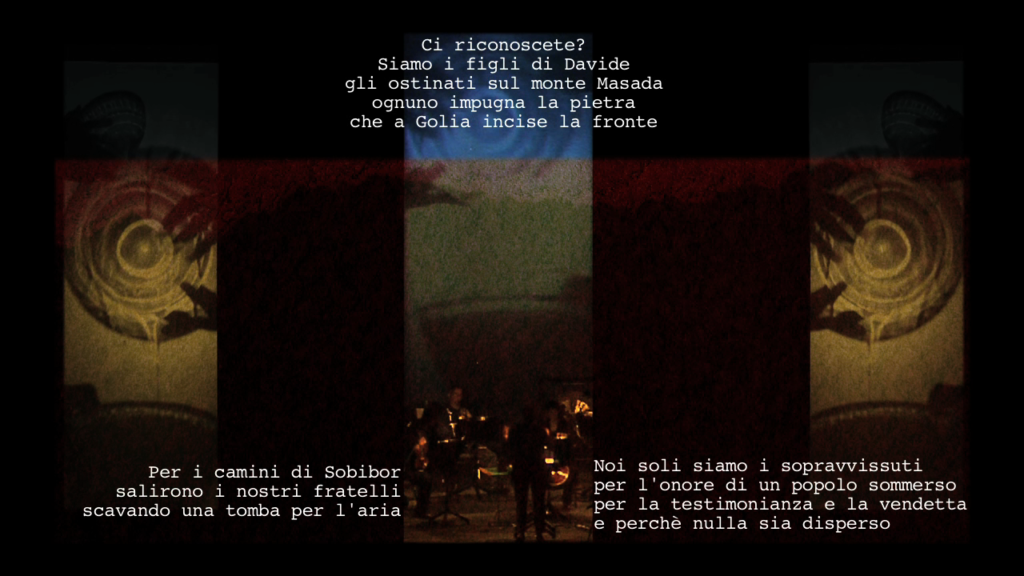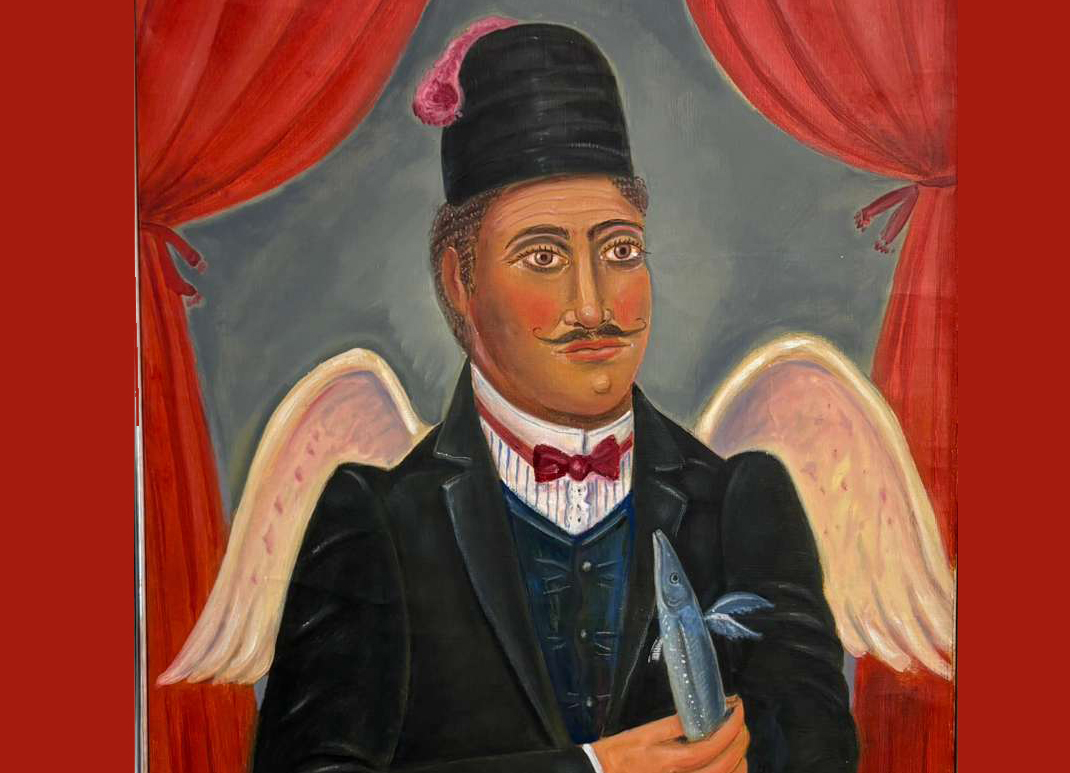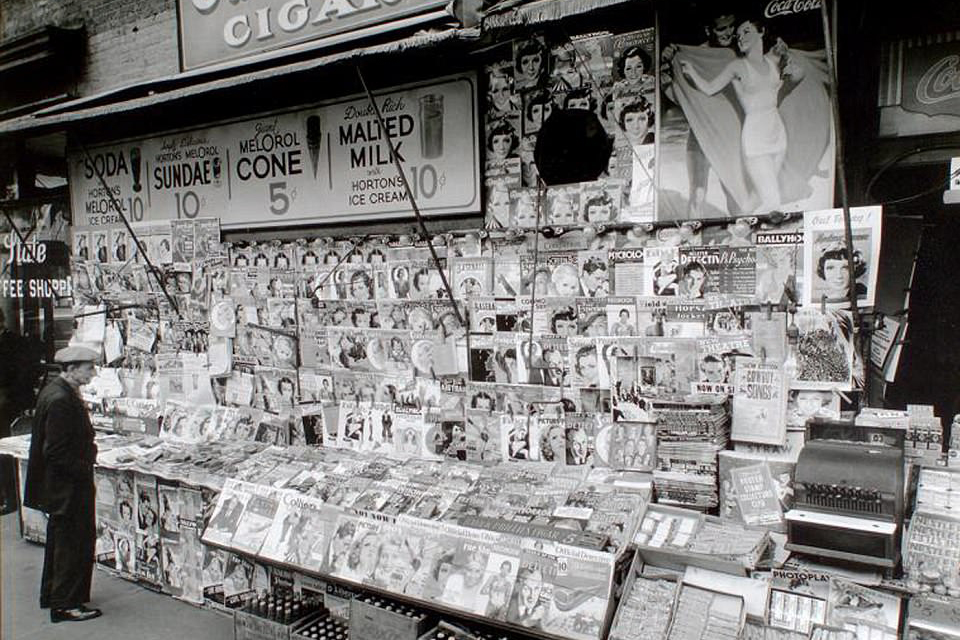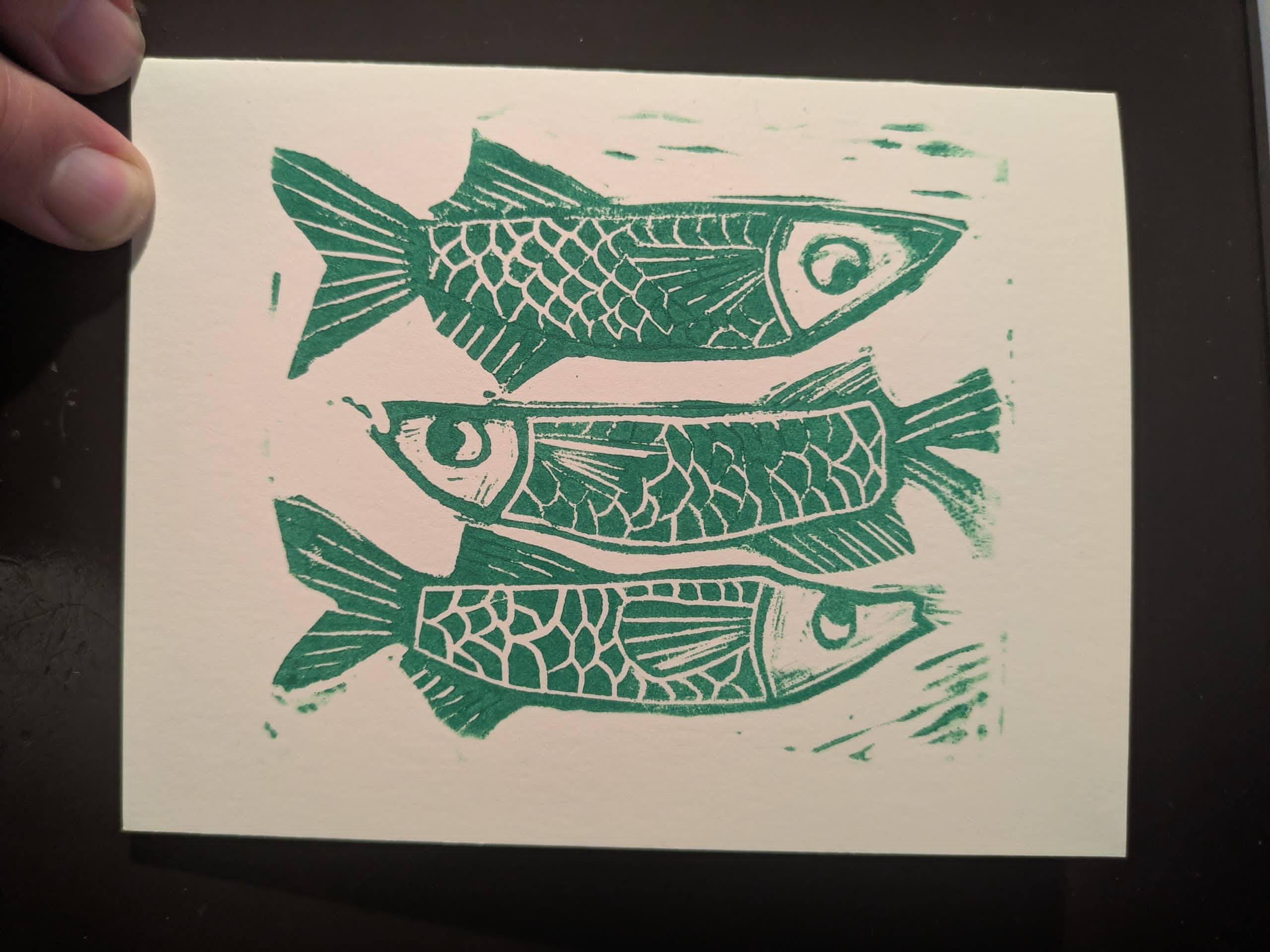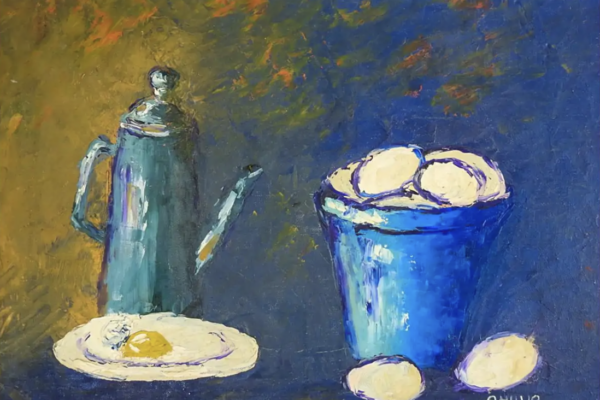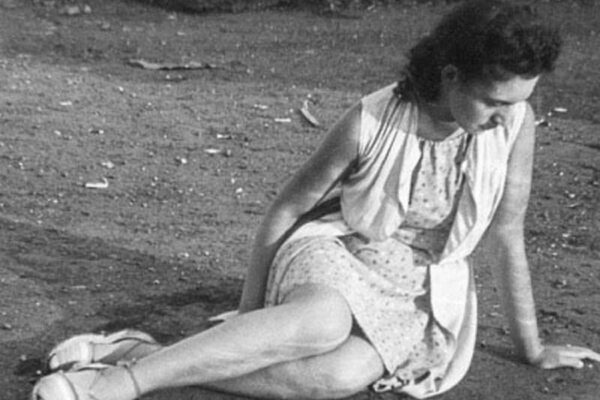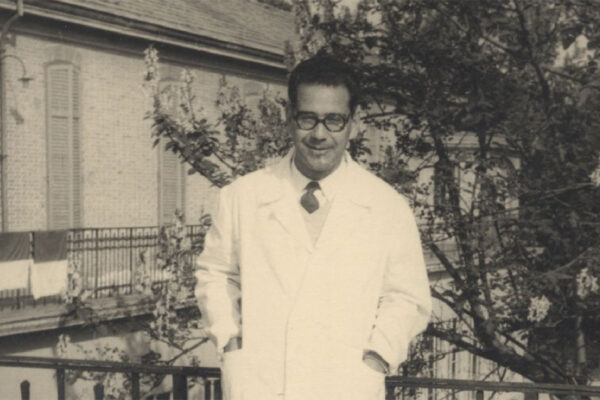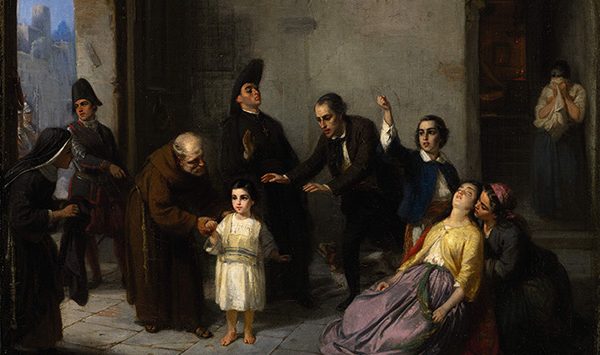La trasparenza della parola. A multimedia homage to Primo Levi. A conversation with Emilio Jona and Andrea Liberovici by Alessandro Cassin.
Primo Levi would have been 90 years old this year. The Piccolo Teatro Regio of Torino (Festival MiTo) followed by the Teatro Carlo Felice of Genoa celebrated his anniversary with the presentation of La trasparenza della parola, a multimedia production with text by Emilio Jona and music by Andrea Liberovici. It was performed to great critical acclaim (La Stampa) by Montreal’s Nouvel Ensemble Moderne. Audiences and critics alike felt that the creators succeeded in avoiding all celebratory rhetoric and managed to address, with accomplished artistry, some of Levi’s life long concerns.
The piece will be presented next in December in Montreal, while arrangements are being made to be premiered in the US next fall.
La trasparenza della parola has taken a long time to come into being.
It was first commissioned one year after Primo Levi’s death in 1988 by the Salone del Libro di Torino (Europe’s second largest book fair). Emilio Jona and the composer Sergio Liberovici, Andrea’s late father, both close friends of Levi’s were asked to write the text and respectively the music. The project ended up being shelved because it exceeded the budget, requiring a choir of 100 children. In it’s current version the piece is conceived for an ensemble of nine musicians, a conductor, electronics and projections.
Alessandro Cassin: What got it going again and what remains of that original version?
Andrea Liberovici: Last year Emilio Jona showed me his text, which I found profoundly moving and beautiful. Nothing remains of my father’s original music, so compositionally I started from scratch, which I am sure is what he would have wanted me to do anyway. The result is a multimedia piece based on Emilio’s text and music I wrote for the Nouvel Ensemble Moderne of Montreal directed by Lorraine Vaillancourt.
AC: How did you conceived the text?
Emilio Jona: The text is structured in nine chapters/poems, each one of the first eight originating from key words taken from a specific work of Primo Levi. For example in If This Is A Man, Levi uses the Polish word Wstawac! (Get Up!) to conjure up the hardship of the first moments in the early morning upon waking up to the horror of the camp. There is also the mysterious name Hrubinek, from The Reawakening, for the speechless boy born in the camp who is dying, or Cooked Linseed Oil from The Periodic Table, and so on. The ninth text, titled La trasparenza della parola, is instead an autonomous poem that I dedicated to Levi. Here I imagine all these words: words of suffering, words of rationality, words of ancient sages- gathering around Primo, who is departing. It begins with “Fu allora che le parole circondarono Primo, grate per l’antica fiducia di aver in loro deposto l’ordine del mondo” and ends with “Tutte davanti a lui si inchinarono terribili, amorose tutte lui le raccolse come un dono e tacque più limpido e più cupo”. For Primo Levi words and understanding were our last and only defense against the loss of humanity.
AC: (To Liberovici) How did you use the text?
AL: The text has the intimate character of the tribute of a life long friend and I felt a desire to deliver it with as few interventions as possible. Only those last words (from the ninth poem) are sung by a recorded children’s choir. The poems were meant to be recited or sung but I chose to have them simply appear as written text on a tulle scroll in front of the musicians. I chose the challenge and the suggestion of the transparency of words that are never spoken but simply appear in their physicality as if generated by the music itself.
AC: (To Jona): So often in contemporary music texts get delivered by singers in such a way as to be barely recognizable; here your texts remain intact!
EJ: In this project I became something different from a traditional librettist. Texts and music exist as parallel planes each informing the other. In addition we have employed the shadow theater created by my son Alberto with his Controluce Teatro D’Ombre, providing visual allusions.
AC: The words somehow constitute the bone structure of the piece…
AL: The size and duration of the words is synchronized with what is happening musically at all times, so that the music seems to flow from them.
AC: From a musical point of view how is the piece conceived?
AL: It is a multimedia project in which things are interconnected, everything relates to everything else. When it comes to the music, I divided the work into two interdependent parts. For the instrumental part I was inspired both rhythmically and melodically by the “cantillare” practice, a form of reciting/singing the bible that precedes psalmody. Then there is an “electronic music” aspect for which I drew from the French musique concrete tradition, assembling sonic material that originate from specific sources such as a train or the opening and closing of a door. These are reworked to the point that they don’t remain necessarily recognizable as such. All of the musical and extra musical material is elaborated in such a way as to work coherently as a whole.
AC: In between the audience and the musical ensemble, Jona’s words materialize on a tulle, as if springing out of the music, yet behind the musicians there is yet another visual layer…
AL: Beyond the orchestra there is another projection.
In what I think is a delicate yet precise device, shadows appear in order to emphasize specific moments and themes. The challenge was to be allusive without being didactic: we wanted to avoid any direct iconographical reference to the camps. To give you an example, there is Hurbinek, the dying child Emilio was referring to in Levi’s The Reawakening. Rather than show him directly, we chose to show the image of an empty swing swaying in the wind. The emptiness is effectively allusive and terrifying. The idea was to work on the timeless dialogue between light and shadow, using the language of poetry, music and images.
AC: The Nouvel Ensemble Moderne is one of the preeminent contemporary music groups which last year celebrated its 20th anniversary. What was your experience working with them and had you worked with them before?
AL: They are a truly great and extremely professional group: a pleasure to work with. I had one previous experience with them two and a half years ago, in a technologically similar homage to the Israeli born French violin virtuoso Ivry Gitlis. I created a work for violin, electronics, video and ensemble, in Montreal.
AC: Your multimedia presentation confronts the audience with simultaneous demands. What is your objective?
AL: I wanted to place the audience in a state of heightened attention. You are following thoughts while inside the music.
AC: What will be the next steps for this piece?
AL: We are producing a DVD version and Emilio Jona is supervising the translation of his text in French and English for performances in Canada and the US.
About the composer
Andrea Liberovici (1962) has been defined a “global composer”. He studied composition at the Conservatory of Venice and is a creator of music and text for theater, radio, television, and ballet.
In 1996 he founded with Edoardo Sanguineti, Filippo Garrone and Ottavia Fusco the experimental group “Teatro del Suono” focusing on the relation between music poetry, stage, and technologies of sound.
Teatro del Suono has realized important international collaborations with artists including Edoardo Sanguineti, Peter Greenaway, Aldo Nove, Judith Malina, Vittorio Gassman, Giorgio Albertazzi, and Claudia Cardinale.


